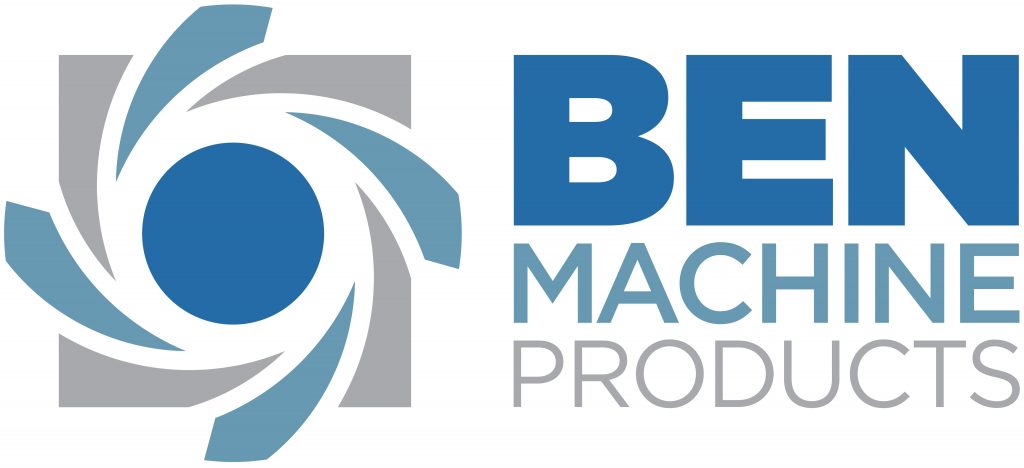
The manufacturing process is inherently complex due to its multifaceted nature, involving various steps such as design, prototyping, material selection, production, and quality assurance. Each stage requires precision and coordination to ensure the final product meets the desired specifications and standards.
This complexity is compounded for buyers and design engineers when seeking a reliable CNC machining partner. Key challenges often revolve around CNC machining itself, which requires specialized skills and equipment, rigorous quality control, and clear communication between teams.
Ben Machine overcomes these challenges by combining its turnkey CNC machining solutions with a full-service engineering department. By integrating engineering for CNC directly into the workflow, Ben Machine ensures that every part moves smoothly from concept to production with precision, efficiency, and repeatability.
Whether you’re producing a prototype or scaling to full production, in-house CNC engineering services improve design outcomes, prevent costly mistakes, and enable more agile manufacturing strategies—especially for mission-critical components in aerospace, defence, and medical sectors.
What Is Precision Engineering in CNC Machining?
Precision engineering in CNC machining refers to the meticulous approach to designing and manufacturing parts to exact specifications, with tolerances often measured in microns. It’s about ensuring every detail—from the dimensions and surface finish to material properties and repeatability—is consistently met throughout production.
In a high-mix, low-volume environment like Ben Machine’s, precision engineering plays a crucial role. Components often vary widely in geometry, complexity, and application, which demands tailored solutions that maintain performance and quality at every stage.
This level of precision is especially vital in industries such as aerospace, defence, and medical, where there’s zero room for error. A component that is even slightly out of tolerance can lead to product failure, safety issues, or regulatory non-compliance.
Precision engineering supports every phase of the manufacturing process:
- Prototyping: Engineers ensure the part can be machined accurately before committing to production.
- Material selection: Choosing materials that will perform under specific conditions while being machinable to tight tolerances.
- Surface finishing: Ensuring finishes meet functional and cosmetic requirements.
- Repeatability: Creating machining processes that ensure each machined part meets the same high standards every time.
By applying precision engineering across the board, CNC engineering services enable clients to reduce risk, enhance reliability, and accelerate time-to-market.
Benefits of Full-Service Engineering Support
CNC manufacturers with an in-house engineering department can significantly streamline communication, leading to more precise execution from design to production in several ways:
- Centralized knowledge base: Engineers can maintain a centralized repository of technical drawings, CAD files, and notes, reducing errors caused by version confusion or lost documentation.
- Direct collaboration: Engineers work alongside machinists and programmers, allowing them to quickly address concerns such as tool clearance, fixturing, and custom tooling requirements. This daily interaction helps eliminate bottlenecks and leads to better-informed decisions.
- Rapid problem-solving: If a production issue arises, in-house engineers can assess it in real-time and collaborate directly with shop floor teams to resolve it quickly, minimizing downtime and material waste.
- Streamlined design reviews: Design reviews happen earlier and more frequently. Engineers identify and resolve potential manufacturability issues before production begins, thereby saving both time and costs.
- Improved communication channels: With engineers embedded in the shop, it’s easier to maintain clear and efficient communication across departments and with clients. Everyone stays on the same page from the start.
- Real-time design modifications: As challenges arise, engineers can suggest or approve design changes on the spot, helping reduce delays and rework. Their input ensures that designs remain aligned with the realities of CNC machining throughout the process. As challenges arise, engineers can suggest or approve design changes on the spot, helping reduce delays and rework.
Engineering in Action: More Than Just Drawings
In-house engineers don’t just interpret prints; they shape the entire CNC process. Their work includes:
- Material selection guidance: Helping clients choose the right alloy or composite based on function, machinability, and budget.
- Manufacturing method planning: Choosing between milling, turning, multi-axis machining, or EDM, depending on part complexity.
- DFM input: Offering design for manufacturability recommendations that maintain performance while reducing machining time or cost.
- Lead time reduction: Identifying opportunities to consolidate setups, optimize programming paths, and reduce changeovers.
They also take into account secondary processes, such as heat treatment or finishing operations, when developing machining strategies, which helps eliminate last-minute surprises. By collaborating with clients during the design phase, they can anticipate potential issues before they become problems and propose more informed, cost-effective alternatives.
Having engineers on-site ensures that parts not only meet the drawing specifications but are built as efficiently and cost-effectively as possible. That’s a significant advantage in competitive, high-spec markets.
From Design to Delivery: How CNC Engineers Plan for Success
The role of engineers in CNC machining is primarily to develop the entire production plan before the first cut. This planning phase is where they identify and resolve many potential issues early, saving time and money down the line.
The Engineering Workflow
- Initial consultation: Engineers meet with the client to understand the part’s function, performance criteria, and constraints.
- Feasibility analysis: They assess whether the design is manufacturable as-is or if changes are needed.
- Prototyping: Engineers support initial part runs to validate the process and test tolerances.
- Testing and feedback: They evaluate the prototype’s performance and make design tweaks as necessary.
- Scaling to production: After confirming the process, engineers prepare documentation, select tooling, and ensure repeatability.
Throughout this journey, engineers work closely with programming teams and machinists to:
- Select appropriate tools and fixturing
- Program toolpaths based on material behaviour and part geometry
- Identify potential sources of variation and plan around them
This upfront planning, made possible by integrated CNC engineering services, sets the stage for a smooth transition from design to delivery.
Seamless Collaboration Between Engineers, Programmers, and Machinists
In high-mix, low-volume machining, collaboration is crucial for maintaining short timelines and high quality. In-house engineers act as a bridge between design intent and real-world machining.
When engineers, programmers, and machinists operate under one roof, they can:
- Use shared platforms, such as computer-aided design (CAD) and computer-aided manufacturing (CAM) software, for design handoffs
- Update digital work instructions in real time
- Conduct live reviews on the shop floor when challenges arise
This tight feedback loop accelerates troubleshooting and ensures that design decisions are grounded in actual machining capabilities. It also encourages continuous improvement, where lessons from one job can be immediately applied to the next. Team members can adapt quickly to customer feedback or design changes, without the delays of back-and-forth emails or external approvals.
It’s an innovative, more agile approach to manufacturing that ultimately improves quality, reduces waste, and delivers better customer outcomes.
Enhancing Turnkey Solutions with In-House Engineering
An in-house engineering team enhances a machine shop’s ability to deliver comprehensive, one-stop-shop solutions by seamlessly integrating expert design consultation, prototyping, and production. Their technical expertise enables rapid iteration and optimization of designs, allowing them to address potential issues early in the process. This close collaboration streamlines workflow, aligning design engineering with manufacturing capabilities to ensure efficient production.
Moreover, the ability to oversee the entire process—from initial consultation to final assembly—facilitates better communication, reducing lead times and costs. The team can maintain quality control and deliver cohesive solutions tailored to clients’ specific needs by housing all services under one roof.
At Ben Machine, we weave engineering expertise into every part of the process. From recommending alternate materials to advising on how to hold a part more efficiently, our engineers help clients realize better outcomes faster. This level of collaboration leads to lower risk, smoother production, and a more substantial return on investment.
Ben Machine’s Full-Service CNC Engineering Department
Ben Machine is proud of its state-of-the-art full-service engineering department. This group of experts reinforces our commitment to delivering exceptional CNC machining solutions, providing comprehensive services that encompass initial design consultation, precision prototyping, and seamless final assembly.
Our in-house engineering team possesses specialized expertise and utilizes the latest technology, ensuring enhanced collaboration, innovative problem-solving, and superior quality control throughout the manufacturing process.
We specialize in machining complex geometries and mission-critical parts that demand tight tolerances, material traceability, and robust quality assurance.
Conclusion
Precision engineering isn’t just about tight tolerances—it’s about building smarter, more reliable processes from day one. With in-house engineering for CNC, Ben Machine delivers CNC machining solutions that combine speed, accuracy, and flexibility.
From early-stage consultation to final inspection, our CNC engineering services provide design engineers and buyers with the confidence that we will build their parts correctly the first time—and every time.
Let’s bring your next project to life. Contact Ben Machine today to learn how our in-house engineering capabilities can support your most demanding applications.


